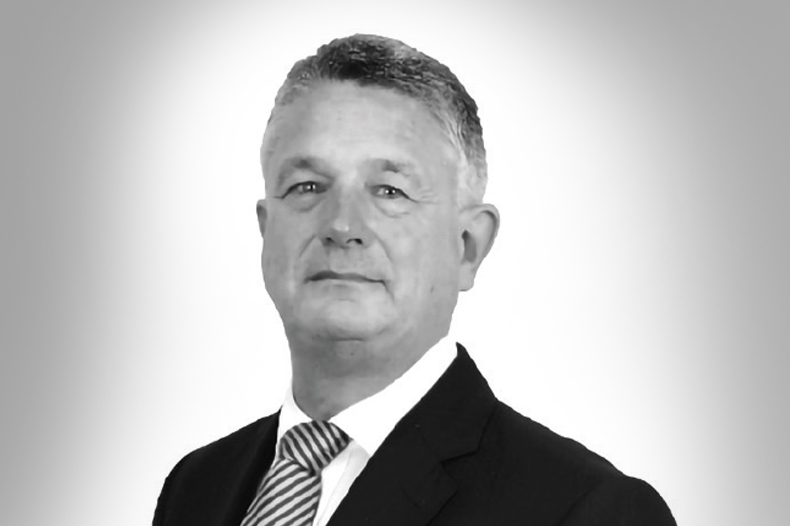Insight: Man on the run
Past CITMA President Philip Harris considers what he hopes to bring to the position of Appointed Person at the UK IPO.

CITMA Review: How has the practice of advocacy in the trade mark and IP space changed over the course of your career?
Philip Harris: It has changed completely. When I joined the profession in 1983, advocacy for Attorneys (called Trade Mark Agents back then) was limited to ex parte hearings, and it wasn’t something that was taught as a skill. It was basically treated as a sales pitch, and you either had the “gift of the gab” or you didn’t. Oppositions and cancellations were more or less the preserve of Counsel. In contrast, nowadays all new Attorneys have at least basic training and know how to assemble and present a case, use skeleton arguments and deploy copious case references. Counsel are used much less. It’s even possible for Attorneys to appear in court, an opportunity seized by only a few so far, but I’m sure we’ll see more of that in the future. And written advocacy, which is just as important, has improved in leaps and bounds.
CR: What developments do you see as beneficial or, in contrast, challenging or disruptive?
PH: As a champion of advocacy rights and skills for Attorneys, I view the expansion of the Attorney role into that realm as entirely beneficial. Even for those who choose not to be “on their feet”, the skills are valuable in the conduct of daily practice. The biggest challenge is getting people to be brave enough to try it. As a profession, we’re squeezed between Barristers and Solicitors, so we should embrace any professional skill that differentiates our offering from theirs. Further, many firms are acquiring independent litigation teams while using Paralegals to handle routine prosecution. If Attorneys do not embrace the new skills, they may find their roles being increasingly squeezed, and even questioned as to their value.
CR: What advice would you give to IP professionals who are taking their first steps into litigation?
PH: Get a thick skin. And learn about evidence.
CR: What did you find most challenging as you developed your own litigation skills?
PH: Cross-examination is rare in IPO proceedings, but I definitely found that the most challenging skill to master. Having come to advocacy relatively late in my career, I didn’t have the chance to hone my skills in the rough and tumble of the criminal or county courts.
CR: What prompted you to apply for the role of Appointed Person?
PH: Originally, it was a logical step from leading ITMA’s (as was) campaign to have Trade Mark Attorneys added to the list of professionals eligible for the post. Later, it became of a matter of good old naked ambition, along with a desire to contribute, if possible, to a field that has given me 37 years of enjoyment.
CR: What did you find the most challenging part of the application process?
PH: Without doubt, selection day, when you are put through your paces by the interview panel. It’s far more nerve-wracking than a showstopper challenge on The Great British Bake Off, I’m sure.
CR: What preparation was most crucial to being successful in the application?
PH: Reading through as many previous AP decisions as possible.
CR: What lessons from your own experience will you apply to your role as AP?
PH: My personal motto is “no plan survives first contact”, so I know full well that however I think a case might pan out, I have to be ready for it – and my view – to go in a completely different direction once the advocate starts to present arguments. My qualification as a Barrister should also be an asset.
CR: It has been reported that of the 21 AP decisions published in 2020, only three appeals were successful. Why do you think that was? Does this confirm the strength of the earlier decisions?
PH: Yes, that is essentially the reason. The IPO has greatly improved the quality of first-instance decision-making over the years. Remember, also, that an appeal is not a rehearing. Even if we disagree with the Hearing Officer’s view, we can only uphold an appeal if we are satisfied the original decision contained an error of principle. In practice, very few do.
CR: Do you feel the any pressure being the first Trade Mark Attorney in the role? And what do you hope to contribute?
PH: No. Someone has to be first and I’m used to sticking my head above the parapet. I hope that my experience of being an Attorney at “the sharp end” will have given me insights which will be useful in discharging the role.
CR: How will you deal with possible or perceived conflicts of interest? This might extend from a historical involvement with a party to perhaps having worked with a party’s representative.
PH: I’ll deal with any conflicts, in a word, transparently. There are well-established rules and principles around this, but the most important thing is that justice is seen to be done. Also, after many years in the profession, you get an innate ethical sense of when it is time to step aside. If taking the case feels “wrong”, it almost certainly is. Each case depends on its particular facts, though.
CR: One of the issues with AP decisions can be the time it takes to get from the hearing to the issue of a decision. Do you think that you will be able to affect this in a positive way?
PH: I very much hope so. I believe things have got a lot better recently, with decisions coming through reasonably quickly. The “default” time for issuing a decision is, I understand, three months but – fingers crossed – I hope to beat that wherever possible.
CR: Aside from your professional commitments, you are a member of The Band from County Hell. How have you been able to fit in six albums and UK touring around your legal career?
PH: Everyone in the band has a day job, so we’ve got very adept at scheduling. And you’d be surprised how much work you can get done with a smartphone from the back of a smelly Transit van.
CR: Are there any parallels you can draw between pleasing an audience at a live show and pleasing the court?
PH: Keep smiling even when you hit a bum note. Make it look like you meant it, and you might get away with it… and, most importantly, know when to get off!
A few facts about Philip
- Appointed Person for trade marks, HM Courts & Tribunals Service, July 2020.
- He has worked in the field of trade marks and IP for 35 years as a Trade Mark Attorney, a Solicitor and, most recently, a Barrister.
- He specialises in litigation and advocacy before the courts and UK IPO.
- He’s a past President of CITMA, a founder member of IPReg and he has been a Tutor/Examiner on Nottingham Trent University’s Trade Mark Practice course.





